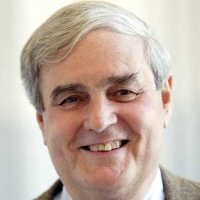Iranian Public Opinion on Foreign Affairs on the Eve of Parliamentary Elections
Four experts offered their analysis on Iranian public opinion and assessed its implications for the upcoming parliamentary elections.
On February 3, 2016, the Middle East Program at the Woodrow Wilson Center and the Center for International and Security Studies at Maryland (CISSM) hosted the event “Iranian Public Opinion on Foreign Affairs on the Eve of Parliamentary Elections,” with Ebrahim Mohseni, Lecturer at the University of Tehran and Senior Analyst at the University of Tehran Center for Public Opinion Research; Robin Wright, Wilson Center-USIP Distinguished Fellow; Paul Pillar, Researcher in the Security Studies Program at Georgetown University; and William Miller, Senior Scholar at the Kennan Institute at the Woodrow Wilson Center. Henri J. Barkey, Director of the Middle East Program at the Woodrow Wilson Center, moderated the event.
Mohseni began by introducing his study “Iranian Attitudes in Advance of the Parliamentary Elections: Economics, Politics, and Foreign Affairs,” published by CISSM. He framed Iranian public opinion in the context of domestic affairs, the instability in the Arab world, and the nuclear issue. Mohseni explained that economic struggles were the main influence on Iranian perception of political issues, including the July 2015 deal with the P5+1, which the public widely expected to bring economic gains that have not yet materialized. He presented many findings of the study, including a strong likelihood of high voter turnout in the upcoming elections, public misunderstanding regarding the terms of the nuclear deal, and suspicions that the United States will not live up to its obligations under the deal.
Wright began her response to Mohseni’s presentation by highlighting how Iran is at one of its most important junctures since the country’s 1979 revolution. She noted that Iranians are exhibiting a very practical reaction to the current political situation by prioritizing economic growth and stability over more revolutionary aims. Wright also explained that Iran’s involvement in the Syrian conflict cannot be simply labeled as a sectarian issue: although Iran does feel like a vulnerable minority state in the region, the public opinion polls reflecting a desire to fight ISIS but not necessarily to support Syrian President Bashar al-Assad suggest a more nuanced dynamic beyond sectarianism.
Pillar analyzed findings of the study in terms of Iran’s relations with the United States. He observed that Iranian suspicions regarding U.S. commitment to the nuclear agreement are mirrored in the United States as well, and that Iranian cynicism is perhaps well founded given U.S. politicians’ efforts to derail the deal. He also drew parallels between the optimism for economic opportunity in Iran following the nuclear deal and a similar optimism in Egypt following the fall of former President Hosni Mubarak, noting that both publics are undergoing a harsh disillusionment regarding their future. Pillar concluded by arguing that if the nuclear deal does fail, it will most likely be due to sabotage from the United States. If the deal’s failure is attributed to Iran, it would likely be a reaction to continued economic stagnation, perceptions of U.S. untrustworthiness, and exploitation of the situation by hardliners (not, as the media may suggest, desire for a nuclear weapon).
Miller articulated his belief that the current political dynamics represent a turning point in U.S.-Iranian relations. He explained that Iranian civil society is relatively open and revolutionary in attitude, which bodes well for the country’s future. He expressed hope that the results of this study would be communicated to U.S. policymakers to promote a shift in the perception of Iranian public opinion. This, Miller hoped, would help alleviate the bias and negativism currently impeding effective policymaking in the United States.
Barkey challenged the framing of several of the study’s questions. He pointed to the poll’s question on whether the public supports Iranian involvement in Syria in order to defend Iran from ISIS, stating that framing the question this way leads to obvious support. Barkey indicated that should the question have been framed, “do you support Iranian involvement in Syria given the fact that we are losing revolutionary guards every month?” it is possible that people would have answered differently. He also expressed the need to be more careful in analyzing the results from the opinion polls, noting the most important questions were the ones regarding the economy. He believes those questions contained the most real and most usable information; while the state has a monopoly on most of the information made available to the public on topics such as foreign policy, most people interact directly with the economy.
In the question and answer portion of the event, the panel responded to a question regarding generational differences in Iranian public opinion. Mohseni described younger Iranians as more educated, informed, concerned about the future, and crushed by unemployment, relative to their older counterparts. He also said they are more in favor of integrating with the international system and the global economy. The older generations, by contrast, value self-sufficiency and non-integration. He elucidated that this divide in perspective is responsible for some of the Iranian youth’s frustrations.
By Veronica Baker, Middle East Program
Speakers

Former U.S. Ambassador to Ukraine


Senior Fellow, Council on Foreign Relations
Hosted By

Middle East Program
The Wilson Center’s Middle East Program serves as a crucial resource for the policymaking community and beyond, providing analyses and research that helps inform US foreign policymaking, stimulates public debate, and expands knowledge about issues in the wider Middle East and North Africa (MENA) region. Read more
